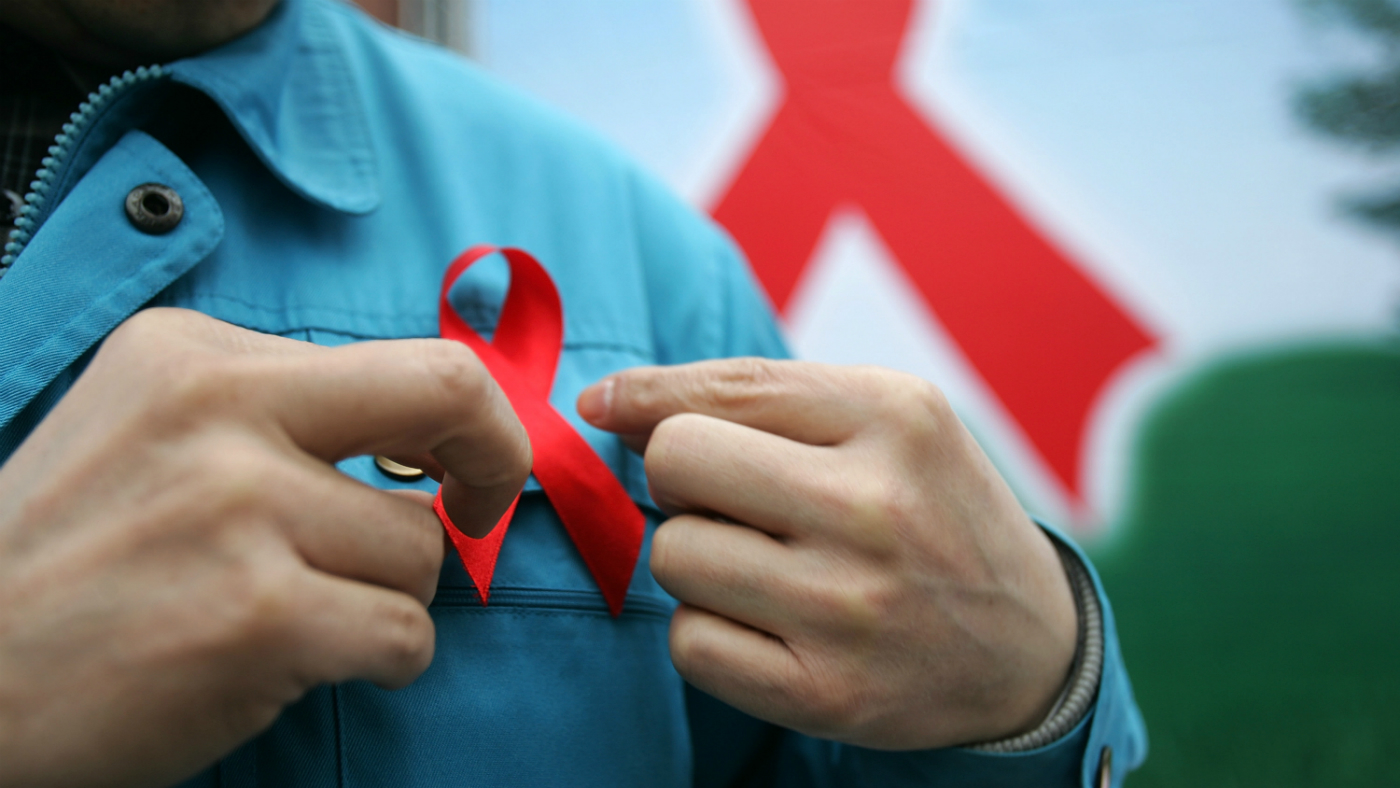HIV cases hit record high as epidemic sweeps Europe
Around 80% of new infections were in Eastern European countries

A free daily email with the biggest news stories of the day – and the best features from TheWeek.com
You are now subscribed
Your newsletter sign-up was successful
The HIV epidemic in Europe is growing “at an alarming pace”, with 160,000 newly diagnosed cases in 2016 - the highest number on record, according to a new report by the World Health Organization.
The agency says that 80% of those cases occurred in Eastern Europe, Reuters reports. The WHO European Region comprises 53 countries, with a total population of almost 900 million.
“Testing people late, particularly those at higher risk of infection, results in late treatment and further contributes to the ongoing spread of HIV,” the UN agency said in a statement.
The Week
Escape your echo chamber. Get the facts behind the news, plus analysis from multiple perspectives.

Sign up for The Week's Free Newsletters
From our morning news briefing to a weekly Good News Newsletter, get the best of The Week delivered directly to your inbox.
From our morning news briefing to a weekly Good News Newsletter, get the best of The Week delivered directly to your inbox.
The director of the European Centre for Disease Prevention and Control (ECDC), Andrea Ammon, said the average period from estimated time of infection until a person was diagnosed was three years, “which is far too long”.
The Daily Mail reports: “Past findings suggest HIV rates are rising in Eastern Europe, particularly in those over 50 who inject illegal drugs, due to a lack of awareness campaigns on the infection’s risks or how to prevent transmission.”
According to the newspaper, the WHO’s European regional director, Zsuzsanna Jakab, warns that if the virus - which causes Aids - continues to spread at the current rate, “we will not be able to achieve the ... target of ending the HIV epidemic by 2030”.
Health officials say Europe needs to focus on prevention measures, HIV counselling and testing, along with better access to quality treatment care.
A free daily email with the biggest news stories of the day – and the best features from TheWeek.com
-
 Why is the Trump administration talking about ‘Western civilization’?
Why is the Trump administration talking about ‘Western civilization’?Talking Points Rubio says Europe, US bonded by religion and ancestry
-
 Quentin Deranque: a student’s death energizes the French far right
Quentin Deranque: a student’s death energizes the French far rightIN THE SPOTLIGHT Reactions to the violent killing of an ultra-conservative activist offer a glimpse at the culture wars roiling France ahead of next year’s elections.
-
 Secured vs. unsecured loans: how do they differ and which is better?
Secured vs. unsecured loans: how do they differ and which is better?the explainer They are distinguished by the level of risk and the inclusion of collateral
-
 Epstein files topple law CEO, roil UK government
Epstein files topple law CEO, roil UK governmentSpeed Read Peter Mandelson, Britain’s former ambassador to the US, is caught up in the scandal
-
 Iran and US prepare to meet after skirmishes
Iran and US prepare to meet after skirmishesSpeed Read The incident comes amid heightened tensions in the Middle East
-
 Israel retrieves final hostage’s body from Gaza
Israel retrieves final hostage’s body from GazaSpeed Read The 24-year-old police officer was killed during the initial Hamas attack
-
 China’s Xi targets top general in growing purge
China’s Xi targets top general in growing purgeSpeed Read Zhang Youxia is being investigated over ‘grave violations’ of the law
-
 Panama and Canada are negotiating over a crucial copper mine
Panama and Canada are negotiating over a crucial copper mineIn the Spotlight Panama is set to make a final decision on the mine this summer
-
 Why Greenland’s natural resources are nearly impossible to mine
Why Greenland’s natural resources are nearly impossible to mineThe Explainer The country’s natural landscape makes the task extremely difficult
-
 Iran cuts internet as protests escalate
Iran cuts internet as protests escalateSpeed Reada Government buildings across the country have been set on fire
-
 US nabs ‘shadow’ tanker claimed by Russia
US nabs ‘shadow’ tanker claimed by RussiaSpeed Read The ship was one of two vessels seized by the US military